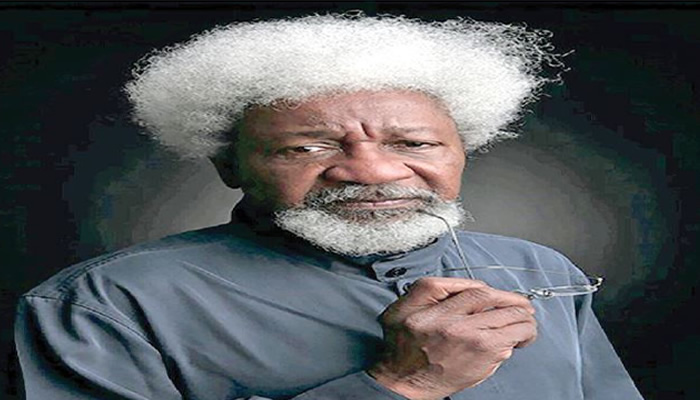Nobel Laureate Prof. Wole Soyinka recently reflected on his experiences following his 1986 Nobel Prize in Literature, revealing the inherent dangers that accompanied this prestigious award. Renowned for his “wide cultural perspective” and ability to articulate the “drama of existence,” Soyinka’s recognition as the first sub-Saharan African to achieve this honor not only elevated his literary standing but also placed him in a precarious position. In an interview with CNN’s Larry Madowo, he candidly expressed that his active involvement in Nigeria’s political dynamics often put him at odds with authoritarian regimes, particularly during the years of military rule, which heightened his sense of vulnerability and isolation.
In his discussion, Soyinka articulated the isolation he felt after receiving the Nobel Prize. The international attention and expectations placed upon him expanded his responsibilities, making him feel as though he had been thrust into a more prominent role as a representative of African voices in literature. He described the sense of pressure that came with the territory, suggesting a societal demand for him to be a spokesperson or advocate for a continent that grapples with numerous challenges. This new visibility, coupled with his unwavering commitment to his beliefs, only intensified his risk in a nation where dissent could be met with severe consequences.
Soyinka recounted his interactions with Nigeria’s brutal military dictator, General Sani Abacha, highlighting the danger that came with his outspoken nature. He remarked that Abacha would have relished the opportunity to claim the hanging of a Nobel laureate as a feather in his cap, showing the lengths to which oppressive regimes go to suppress dissenting voices. Soyinka’s life was under constant threat during Abacha’s rule, a reality that he faced head-on. The situation culminated in a death sentence pronounced against him in absentia after he was forced to flee Nigeria, traveling on a motorcycle to safety through the Benin border.
During the tumultuous years of Abacha’s regime from 1993 to 1998, Soyinka’s literary prowess and political activism made him a target. Despite these challenges, his resolve to stand by his convictions never wavered. He articulated how his activism, driven by a sense of justice and equality, often put him directly in the crosshairs of the military government. This deeply personal struggle against authoritarian rule not only defined his legacy as a writer but also showcased his commitment to the ideals of democracy and human rights, making him a symbol of resistance in Nigeria and beyond.
Reflecting on the more personal aspects of his life, Soyinka shared his aversion to celebrating birthdays in a traditional sense. As he approached his 90th birthday, he conveyed that the passage of time held little significance for him; instead, he preferred to use this day for introspection, often retreating into nature. His unique approach mirrors the complexity of his character and life experiences, underpinned by a deep connection to the environment and a desire for solace amidst the chaos of political life. For Soyinka, turning 90 does not signify the end of a journey but rather, the continuation of a life rich with literary contributions and advocacy for freedom.
In summary, Wole Soyinka’s journey from Nobel laureate to political activist underscores the intricate relationship between art and politics, highlighting the dangers that often accompany speaking truth to power. His candid revelations about the threats he faced, particularly under Abacha’s regime, paint a vivid picture of the sacrifices made by individuals who dare to stand against tyranny. Furthermore, his reflections on birthdays reveal a person who finds comfort in solitude, amidst a legacy that demands public engagement. Soyinka’s story not only enriches the narrative of Nigerian literature but also serves as a reminder of the enduring struggle for human rights and freedom worldwide.














